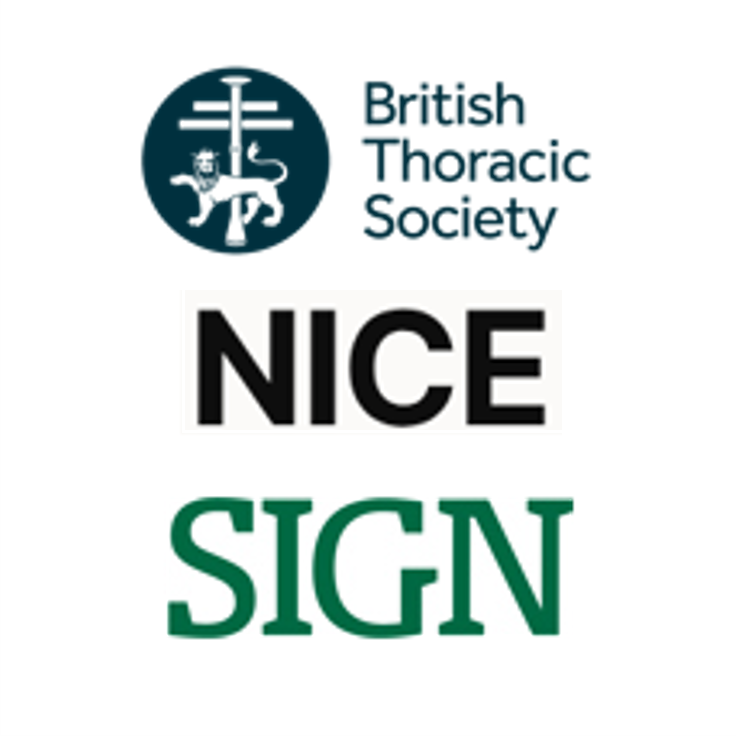Overview

This asthma pathway links to recommendations and resources from the British Thoracic Society (BTS), National Institute for Health and Care Excellence (NICE) and Scottish Intercollegiate Guidelines Network (SIGN) on diagnosing, monitoring and managing asthma in adults, young people and children.
Last reviewed: 27 November 2024
This asthma pathway contains
- BTS, NICE and SIGN collaborative guideline
- BTS/SIGN guidlines
- Technology Appraisals
- SMC advice
- Other NICE products relevant to asthma.
BTS and SIGN have retained the recommendations on non-pharmacological management, managing acute attacks and managing difficult asthma.
See also, SIGN Asthma [awaiting link].
Future/planned updates: BTS and SIGN have been working together to agree on the actions to be taken in relation to revalidating and updating the areas covered in the BTS/SIGN British guideline on the management of asthma (SIGN 158) that fall outside the scope of Asthma: diagnosis, monitoring and chronic asthma management (BTS, NICE, SIGN) [SIGN 245].
Details on the approach can be found in the scoping summary.
For queries, contact us.
Who is this pathway for?
- Healthcare professionals in primary care and the community secondary care and tertiary asthma services
- Commissioners and providers
- People with suspected or diagnosed asthma, their families and carers.
Recommendations
People have the right to be involved in discussions and make informed decisions about their care, as described in Realistic Medicine. Information about decision making is also available from NICE's information on making decisions about your care.
Using SIGN guidelines and Making decisions using NICE guidelines explain how we use words to show the strength (or certainty) of our recommendations, information about prescribing medicines (including off-label use), professional guidelines, standards and laws (including on consent and mental capacity), and safeguarding.
In this pathway, the NHS refers to NHS Scotland and NHS England unless stated otherwise. The recommendations are for all age groups unless indicated otherwise in the heading of the guideline section.
Health professionals should follow these NICE guidelines for people delivering care:
In addition, health professionals in England should follow these NICE guidelines for people delivering care:
- Medicines optimisation
- Patient experience in adult NHS services
- Babies, children and young people's experience of healthcare
- Decision making and mental capacity
In addition, health professionals in Scotland should follow Scottish Government guidance for people delivering care: